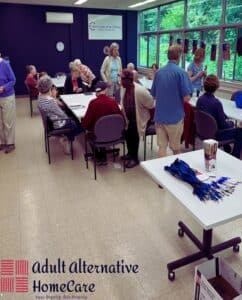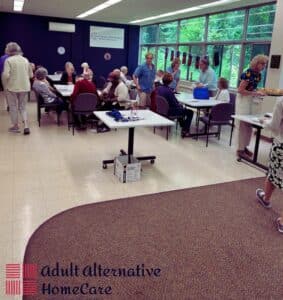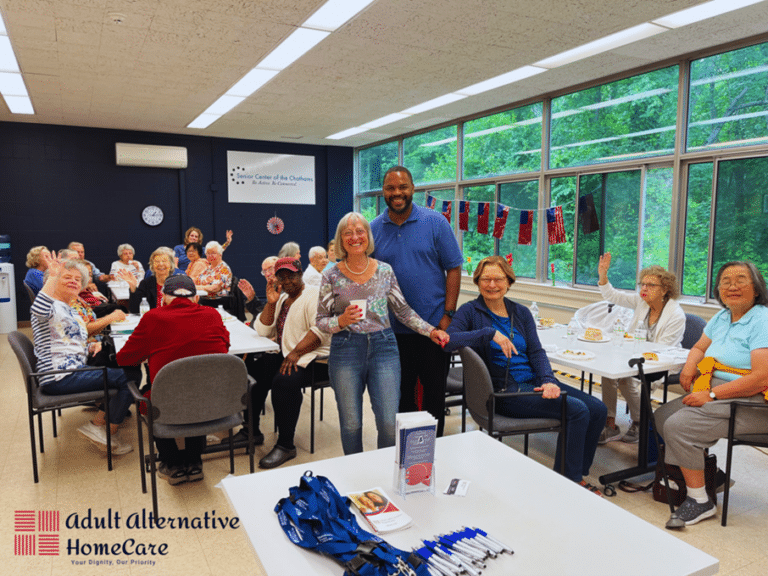It was a great pleasure to host lunch and present our services to the seniors of Chatham Senior Center. The seniors had a presentation on Memory Loss by the Alzheimer’s Association followed by lunch. It was a great turn out with over thirty members in attendance. The seniors meet regularly at the center to interact socially and participate in varies activities.

Social interactions play a crucial role in maintaining cognitive function and preventing memory loss, particularly in aging individuals. Here’s how social engagement can influence memory and cognitive health-
*Cognitive Stimulation- Engaging in conversations and social activities stimulates the brain, promoting the formation of new neural connections. This cognitive stimulation helps maintain mental acuity and delays the onset of memory decline.
*Emotional Support- Positive social interactions provide emotional support, reducing stress and depression, which are known risk factors for cognitive decline and memory loss. Emotional well-being is closely linked to cognitive health.

*Routine and Structure- Regular social activities can provide routine and structure, which are beneficial for maintaining cognitive function. Scheduled social interactions can help individuals stay organized and mentally active.
*Learning Opportunities- Social interactions often involve learning new information or skills, whether through conversations, shared activities, or group learning. This continuous learning helps build cognitive reserve and enhances memory.
*Prevention of Isolation- Social isolation is a significant risk factor for cognitive decline. Regular social interactions help prevent feelings of loneliness and isolation, which can contribute to memory loss and other cognitive impairments.
*Physical Activity- Social activities often involve physical movement, such as walking with friends or participating in group exercises. Physical activity is known to improve brain health and reduce the risk of memory loss.
Maintaining an active social life can be achieved through various means, such as joining clubs, volunteering, participating in community events, staying connected with family and friends, or engaging in online social networks. These activities can significantly contribute to preserving memory and overall brain health.
- Home Care Assistance Can Help Seniors Manage Self-Care Tasks - April 24, 2025
- The Superfood You Shouldn’t Miss - April 9, 2025
- First Home Care Visit? Here’s The Inside Scoop - April 9, 2025


